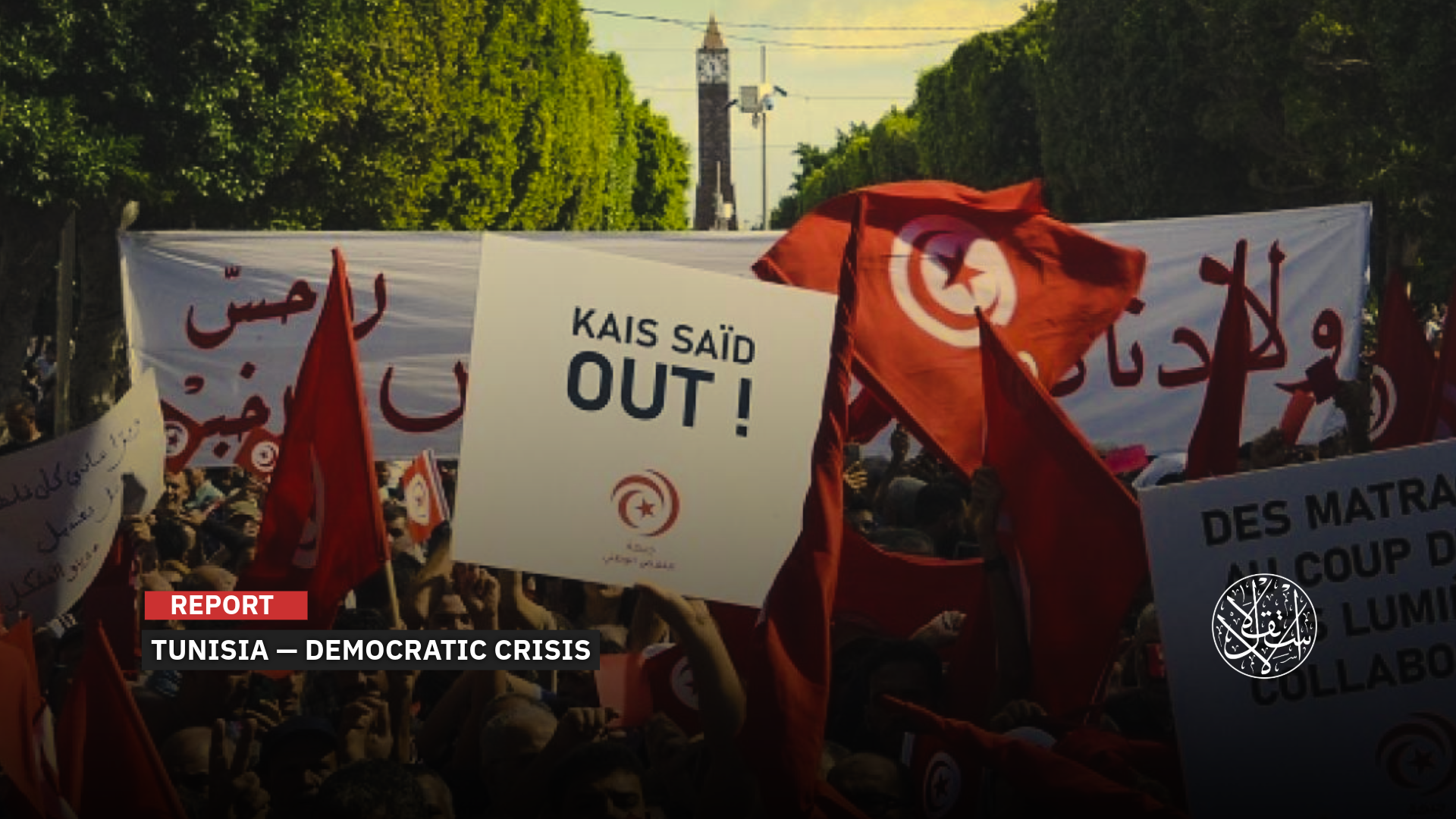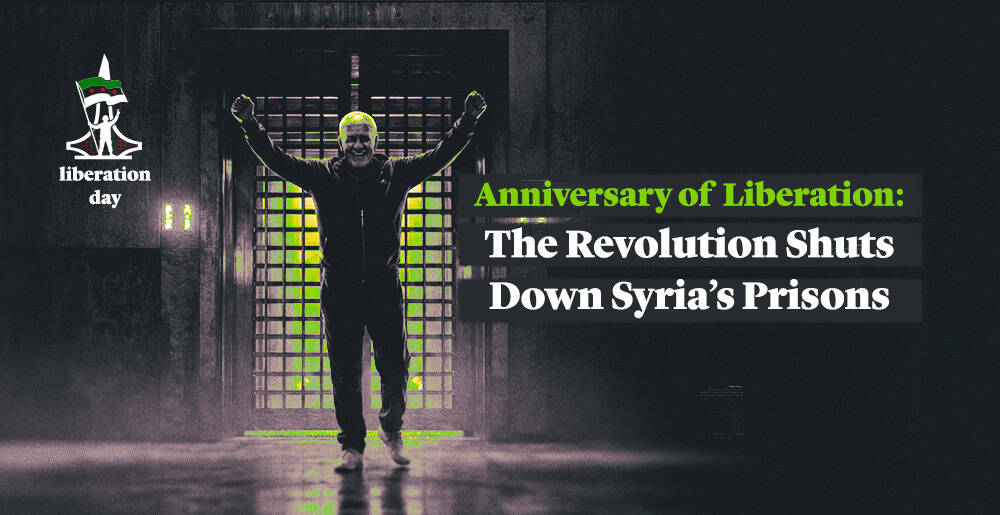U.S. Initiative to Restore Democracy in Tunisia: Can It Sideline Kais Saied?

Tunisia is crumbling under repression and economic crisis.
Tunisia’s political and democratic backsliding is no longer a matter of local scrutiny alone. Calls for the restoration of democracy and civil liberties in the country have begun to echo internationally, most recently from American politicians.
The country finds itself at the center of a heated debate over a U.S. congressional initiative aimed at “restoring democracy.” The proposal was introduced in the first week of September 2025 by two lawmakers, Republican Joe Wilson and Democrat Jason Crow.
The initiative, submitted to the Speaker of the House, is expected to be referred to the Foreign Affairs and Judiciary Committees for discussion before being put to a full House vote. If approved, it would then move to the Senate and, ultimately, to the desk of President Donald Trump for signature.
Recorded Violations
The initiative is based on the premise that the government of Tunisian President Kais Saied is, “an authoritarian regime, violating human rights, and acting in ways that contravene the constitution.”
Accordingly, it calls for the restoration of democracy and the holding of elections in line with the 2014 constitution, which Saied abolished and replaced with a charter drafted by his own hand.
If the resolution is approved, Tunisia would face sanctions lasting four years, involving what France 24 described on September 4, 2025, as “harsh measures,” primarily including strict penalties and targeted, pressure-inducing actions.
Among these measures are cutting off aid to the military and other bodies implicated in the “democratic backsliding,” as well as in the human rights violations recorded, according to the two lawmakers.
In addition, the initiative calls for “freezing Tunisian assets and funds held in the United States.”
Other measures include “denying entry visas to the United States for officials involved in rights violations,” what the bill refers to as the “authoritarian trajectory” since the July 2021 coup.
Saied led that coup with the backing of state institutions, and what is often described as the “deep state”, the army, security forces, and bureaucratic administration.
He also dissolved the Supreme Judicial Council and a number of other constitutional bodies, including the National Anti-Corruption Authority, and introduced a new constitution on July 25, 2022, under which the political system shifted from parliamentary to presidential, granting him sweeping powers.
At the end of 2022, Saied called for legislative elections that saw only minimal voter participation and were boycotted by opposition parties, resulting in the installation of a loyalist parliament with limited functions and no significant authority over the president.
On civil liberties, in February 2023, Saied launched a broad security campaign against dozens of opponents, who were arrested and imprisoned, then tried at first instance for conspiring against state security under the anti-terrorism law, and handed harsh sentences.

Serious issues
Tunisian journalist and political writer Salah Atiyah described the U.S. congressional initiative as “raising serious issues.”
In an opinion piece published on the Tunisian site Rai Seyasi on September 16, 2025, Atiyah noted that a decision of this kind could later extend to other countries, underlining the gravity of the U.S. resolution and its potential impact on the future of bilateral relations.
He explained that “the U.S. resolution, which was aired on various American channels before Arab ones, comes amid notable developments in Tunisian-American relations over the past few weeks.”
“At the end of July 2025, the senior U.S. adviser for African and Arab affairs, Massad Boulos, visited Tunisia, meeting with Kais Saied and, according to reliable sources, urged him to restore democracy and elected institutions, calling on him to hand power over to the youth,” Atiyah added.
He said Saied “expressed his displeasure at the American official’s demand, and the official presidency page released a statement emphasizing Tunisia’s insistence on non-interference in the internal affairs of regional countries,” while also beginning “to reshape its international alliances,” in reference to Iran, Russia, and China.
“A few days later, Italian Prime Minister Giorgia Meloni made a sudden visit to Tunisia, the purpose of which was not disclosed, but leaks suggested that Meloni sought to persuade Saied to take the American observations seriously, and that Trump was serious about restoring Tunisian democracy.”
Atiyah believes the United States will seek to “restore Tunisian democracy” through diplomatic and political engagement, much as it did with ousted President Zine El Abidine Ben Ali, who in 2009 rejected the advice of then-Secretary of State Condoleezza Rice.
He elaborated, “At that time, she urged him to initiate a national dialogue, release political prisoners, give the Islamic opposition access to media platforms, and hold transparent, democratic elections to achieve a democratic transition in the country, in exchange for substantial financial support for Tunisia’s budget to overcome the economic crisis.”
Atiyah concluded that Tunisia is gradually moving toward an even more uncertain horizon if Saied’s regime continues intransigently, raising the banner of “complete national liberation” without substance, and invoking “national sovereignty” in a vague sense that provides neither sustenance to Tunisians nor productive alliances, nor true independence in decision-making.
“Meanwhile, we see the political elites and class either in prison or in exile, while those who remain live in fear of potential imprisonment, since the easiest path in Tunisia today leads straight to jail,” Atiyah added.

Moment of Reckoning
Supporters of Saied have expressed their rejection of the U.S. initiative and its content, arguing that it represents direct interference in Tunisia’s internal affairs.
In this context, MP Yassine Mami condemned the proposed bill, describing it as “an unacceptable intrusion into the internal affairs of a fully sovereign state, and a violation of the principles of international relations based on mutual respect.”
Mami told the press on September 5 that the proposal “reflects a desire to impose external dictates by linking economic aid to selective political conditions.”
Similarly, MP Tarek Mahdi expressed his “deep astonishment and categorical rejection” of the U.S. initiative.
Mahdi stated that “the MPs firmly reject any attempts at tutelage or imposing external interpretations on Tunisia’s national experience.”
He added, “Democracy is not a ready-made formula, but a national process that develops according to the will and aspirations of the people.”
Supporters of the Tunisian “Al-Watan” movement described the U.S. intervention as “a new chapter in attempts to impose tutelage under false slogans,” aimed at “obstructing the reform process and dismantling state institutions.”
They called in a statement for the formation of “a broad national front and a charter based on defending sovereignty, combating corruption, and enhancing economic and political independence.”
In his reading of the U.S. step, Tunisian political analyst Amine Ayoub said that “the initiative is extremely important, as it opens a real window of opportunity to change the situation in Tunisia towards restoring democracy and freedoms.”
Ayoub told Al-Estiklal that “legislators from both the Democratic and Republican parties are seeking to link US aid to democratic reforms and prevent the collapse of the Arab Spring’s only success story.”
“Tunisia, long considered the sole success story of the Arab Spring, now stands at a crucial crossroads, and the democratic dream that flourished in 2011 is fading under the rule of Kais Saied.”
“His seizure of power in July 2021, dissolving parliament, consolidating all authorities, and ruling by decree, transformed an emerging democracy into an authoritarian system.”
Accordingly, Ayoub added, what was previously regarded as the region’s sole model for democratic transition “has become another cautionary tale of a return to autocracy.”
“Washington’s response was slow, but a clear bipartisan consensus is emerging, signalling that the United States cannot stand idly by while a strategic ally slides further into dictatorship.”
“This is not about interfering in a country’s internal affairs, but about promoting the values of democracy, human rights, and the rule of law, which form the pillars of U.S. foreign policy,” Ayoub added.
“It is also about protecting U.S. interests; over more than a decade, the United States has invested hundreds of millions of dollars in Tunisia, treating it as a key partner in counterterrorism efforts and a rare island of stability in a turbulent region.”
“This financial and strategic investment is now at risk. A country lacking political checks and balances, where dissent is suppressed and criminalized, is not a stable partner.”
“This is a ticking time bomb that could trigger further instability and insecurity, not only for Tunisians but for the wider Mediterranean and North Africa region,” he said.
Amin stressed that “President Saied’s rhetoric on national sovereignty against foreign intervention is nothing more than a cynical ploy to distract from his failures.”
“It is the same worn-out argument used by autocrats around the world to silence critics and justify undemocratic actions.”
“True sovereignty does not come from the grip of a single ruler, but from the collective will of a free and empowered people.”
“The Tunisian people, who have sacrificed so much for their revolution, deserve the right to hold their leaders accountable, express their opinions without fear, and live under a constitution that protects their rights, not one designed merely to expand the powers of its president,” Amine concluded.

Political Analysis
In contrast, Tunisian political analyst and security expert Khalifa Chibani argued that “this is an individual initiative and does not reflect official U.S. policy.”
Chaibani told The Arab Weekly on September 9, 2025, that “Trump recently reaffirmed the depth of U.S.-Tunisian relations.”
“Despite political differences in Tunisia, all parties and organizations condemned this intervention, reflecting a unified Tunisian position, even among opposition parties critical of the government and President Saied.”
“The role of the Ennahda movement, one of the main Islamist currents, in establishing a lobby within the United States that works against Tunisia’s interests, cannot be ignored,” Chibani said.
However, political analyst Amine Ayoub argued that “critics who claim the initiative reflects Western hypocrisy or interference in internal affairs, given other global conflicts, overlook the essence of the matter.”
Ayoub told Al-Estiklal that “the U.S. commitment to democracy has never been perfect, but it remains a cornerstone of American identity and foreign policy. Diplomatic tools, including foreign aid, are not charity; they are investments in stability and shared values.”
“Linking aid to democratic reforms is not interference, but a reflection of how partnerships work: mutual respect, accountability, and trust.”
“The United States has a moral and strategic duty to support the Tunisian people’s struggle for a democratic future,” Ayoub added.
“The risks extend far beyond Tunisia, as a free and open Tunisia could serve as a model for the region at a time when authoritarianism is on the rise, from Egypt to Algeria.”
“Conversely, a Tunisia collapsing under repression and economic crisis could easily become fertile ground for extremism, illegal migration, and instability, directly threatening Europe and the United States.”
Ayoub concluded that democracy in Tunisia “is not just about ideals, but also about core national security interests.”










